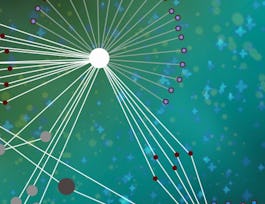Recent years have seen a dramatic growth of natural language text data, including web pages, news articles, scientific literature, emails, enterprise documents, and social media such as blog articles, forum posts, product reviews, and tweets. Text data are unique in that they are usually generated directly by humans rather than a computer system or sensors, and are thus especially valuable for discovering knowledge about people’s opinions and preferences, in addition to many other kinds of knowledge that we encode in text.


Text Retrieval and Search Engines
This course is part of Data Mining Specialization
Taught in English
Some content may not be translated

Instructor: ChengXiang Zhai
57,766 already enrolled
Included with 
Course
(942 reviews)
90%
Details to know

Add to your LinkedIn profile
14 quizzes
Course
(942 reviews)
90%
See how employees at top companies are mastering in-demand skills

Build your subject-matter expertise
- Learn new concepts from industry experts
- Gain a foundational understanding of a subject or tool
- Develop job-relevant skills with hands-on projects
- Earn a shareable career certificate


Earn a career certificate
Add this credential to your LinkedIn profile, resume, or CV
Share it on social media and in your performance review

There are 7 modules in this course
You will become familiar with the course, your classmates, and our learning environment. The orientation will also help you obtain the technical skills required for the course.
What's included
2 videos6 readings2 quizzes1 plugin
During this week's lessons, you will learn of natural language processing techniques, which are the foundation for all kinds of text-processing applications, the concept of a retrieval model, and the basic idea of the vector space model.
What's included
6 videos1 reading2 quizzes
In this week's lessons, you will learn how the vector space model works in detail, the major heuristics used in designing a retrieval function for ranking documents with respect to a query, and how to implement an information retrieval system (i.e., a search engine), including how to build an inverted index and how to score documents quickly for a query.
What's included
6 videos1 reading2 quizzes
In this week's lessons, you will learn how to evaluate an information retrieval system (a search engine), including the basic measures for evaluating a set of retrieved results and the major measures for evaluating a ranked list, including the average precision (AP) and the normalized discounted cumulative gain (nDCG), and practical issues in evaluation, including statistical significance testing and pooling.
What's included
6 videos2 readings2 quizzes1 programming assignment
In this week's lessons, you will learn probabilistic retrieval models and statistical language models, particularly the detail of the query likelihood retrieval function with two specific smoothing methods, and how the query likelihood retrieval function is connected with the retrieval heuristics used in the vector space model.
What's included
7 videos1 reading2 quizzes
In this week's lessons, you will learn feedback techniques in information retrieval, including the Rocchio feedback method for the vector space model, and a mixture model for feedback with language models. You will also learn how web search engines work, including web crawling, web indexing, and how links between web pages can be leveraged to score web pages.
What's included
8 videos1 reading2 quizzes
In this week's lessons, you will learn how machine learning can be used to combine multiple scoring factors to optimize ranking of documents in web search (i.e., learning to rank), and learn techniques used in recommender systems (also called filtering systems), including content-based recommendation/filtering and collaborative filtering. You will also have a chance to review the entire course.
What's included
10 videos1 reading2 quizzes1 programming assignment1 plugin
Instructor

Recommended if you're interested in Data Analysis

University of Illinois at Urbana-Champaign

University of Illinois at Urbana-Champaign

University of Illinois at Urbana-Champaign

University of Illinois at Urbana-Champaign
Why people choose Coursera for their career




Learner reviews
Showing 3 of 942
942 reviews
- 5 stars
65.95%
- 4 stars
23.64%
- 3 stars
6.68%
- 2 stars
1.59%
- 1 star
2.12%
New to Data Analysis? Start here.

Open new doors with Coursera Plus
Unlimited access to 7,000+ world-class courses, hands-on projects, and job-ready certificate programs - all included in your subscription
Advance your career with an online degree
Earn a degree from world-class universities - 100% online
Join over 3,400 global companies that choose Coursera for Business
Upskill your employees to excel in the digital economy
Frequently asked questions
Access to lectures and assignments depends on your type of enrollment. If you take a course in audit mode, you will be able to see most course materials for free. To access graded assignments and to earn a Certificate, you will need to purchase the Certificate experience, during or after your audit. If you don't see the audit option:
The course may not offer an audit option. You can try a Free Trial instead, or apply for Financial Aid.
The course may offer 'Full Course, No Certificate' instead. This option lets you see all course materials, submit required assessments, and get a final grade. This also means that you will not be able to purchase a Certificate experience.
When you enroll in the course, you get access to all of the courses in the Specialization, and you earn a certificate when you complete the work. Your electronic Certificate will be added to your Accomplishments page - from there, you can print your Certificate or add it to your LinkedIn profile. If you only want to read and view the course content, you can audit the course for free.
If you subscribed, you get a 7-day free trial during which you can cancel at no penalty. After that, we don’t give refunds, but you can cancel your subscription at any time. See our full refund policy.

